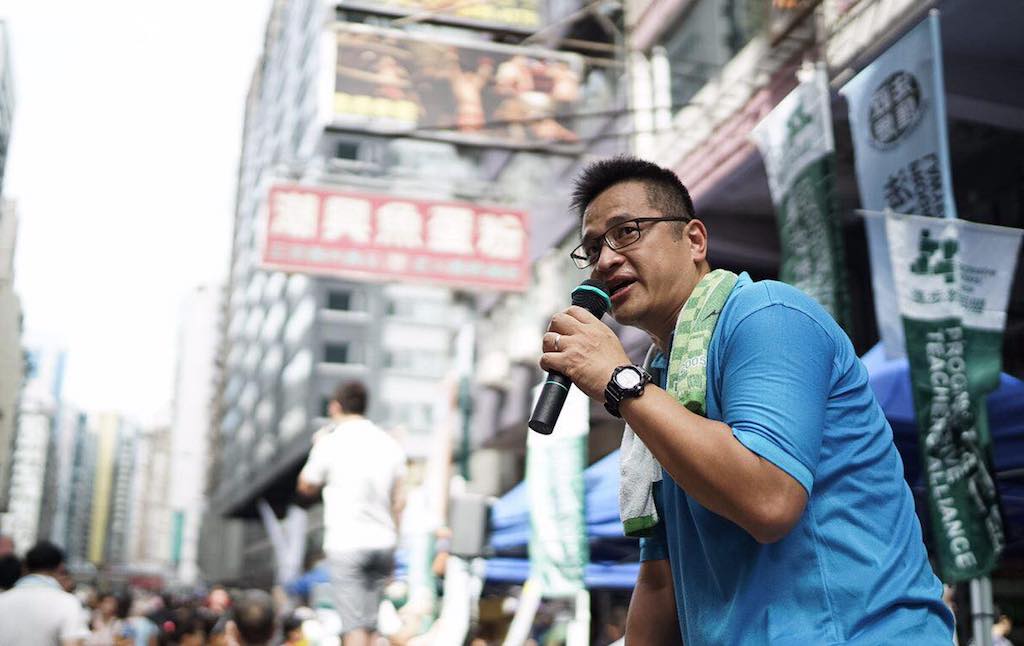A wave of online attacks against Judge David Dufton of the District Court has taken place following his decision on Tuesday to convict seven police officers of assault against activist Ken Tsang during the 2014 pro-democracy Occupy protests.
Some pro-police supporters posted pictures of the judge, called his ruling “political prosecution,” and alleged that he took money from the Civic Party, of which Tsang was formerly a member. There was also a post with photos of non-Chinese judges, calling them “foreigners who mess up Hong Kong.”

A rally against Judge Dufton’s decision was originally scheduled for Saturday. A police spokesperson told HKFP on Wednesday that they would contact the organisers for more details of the event. But the social media post calling for the protest has since been removed.
The post described the judge as a “dog.” It is an insult in Chinese to call someone a dog.
Outspoken film director Clifton Ko Chi-sum also posted several times on social media following Tuesday’s verdict. He said the judge was biased and pro-democracy.
After being called out for allegedly committing contempt of court, Ko said in response: “Which Hong Kong law says you can’t criticise judges?”

Contempt of court
Barrister Chris Ng of the Progressive Lawyers Group explained that, although contempt of court is not encoded in any ordinance, it is a common law offence and there are cases of convictions for this offence.
A notable example is the imprisonment of Oriental Daily’s editor-in-chief for four months in 1998 after the newspaper insulted a judge and sent paparazzi to tail him for three days around the clock in protest at a court decision.
Ng warned that these online commenters might have committed contempt of court.
“While people have the right to criticise the court, their criticism must be founded and reasonable,” Ng told HKFP. “It may be contempt of court if their attack is totally unfounded and may shake public confidence in the judiciary.”
“Pro-China groups have attacked judges on a few occasions. The justice secretary has already warned them against insulting the judiciary or else he may take action. If they totally ignore the warning, they shouldn’t complain when they get in trouble.”

Ng added that even if some commenters don’t specify a case or a judge, they may commit the offence if their statements have the same effect of damaging public confidence in the judiciary.
“Especially given the sensitive timing, people can easily draw inferences from your statement about which case you are referring to,” he said. “It is a misconception that you can bypass the law by not naming the case or the judge.”
Warnings from authorities
A police spokesperson told HKFP that while the force respects freedom of expression, it may take follow-up action if any statements potentially violate the law. It urged the public to abide by the law.
A spokesperson for the Department of Justice told HKFP that criticism of court decisions must be “bona fide, balanced and justified.” It advised the public against making comments which might exert pressure on individual judges.
“There is no place for scurrilous attacks against judges made in bad faith, or conduct which is calculated to bring the administration of justice into disrepute. Such conduct can constitute contempt of court by scandalising the court or the judges,” it said.

“The Department will have no hesitation in referring conduct which can constitute contempt of court to the law enforcement agencies for investigation and, in appropriate cases, initiating contempt proceedings.”
Earlier this month, Bar Association Chair Paul Lam Ting-kwok also expressed concern that Hong Kong judges face an upward trend of “unreasonable” criticism from the general public.
